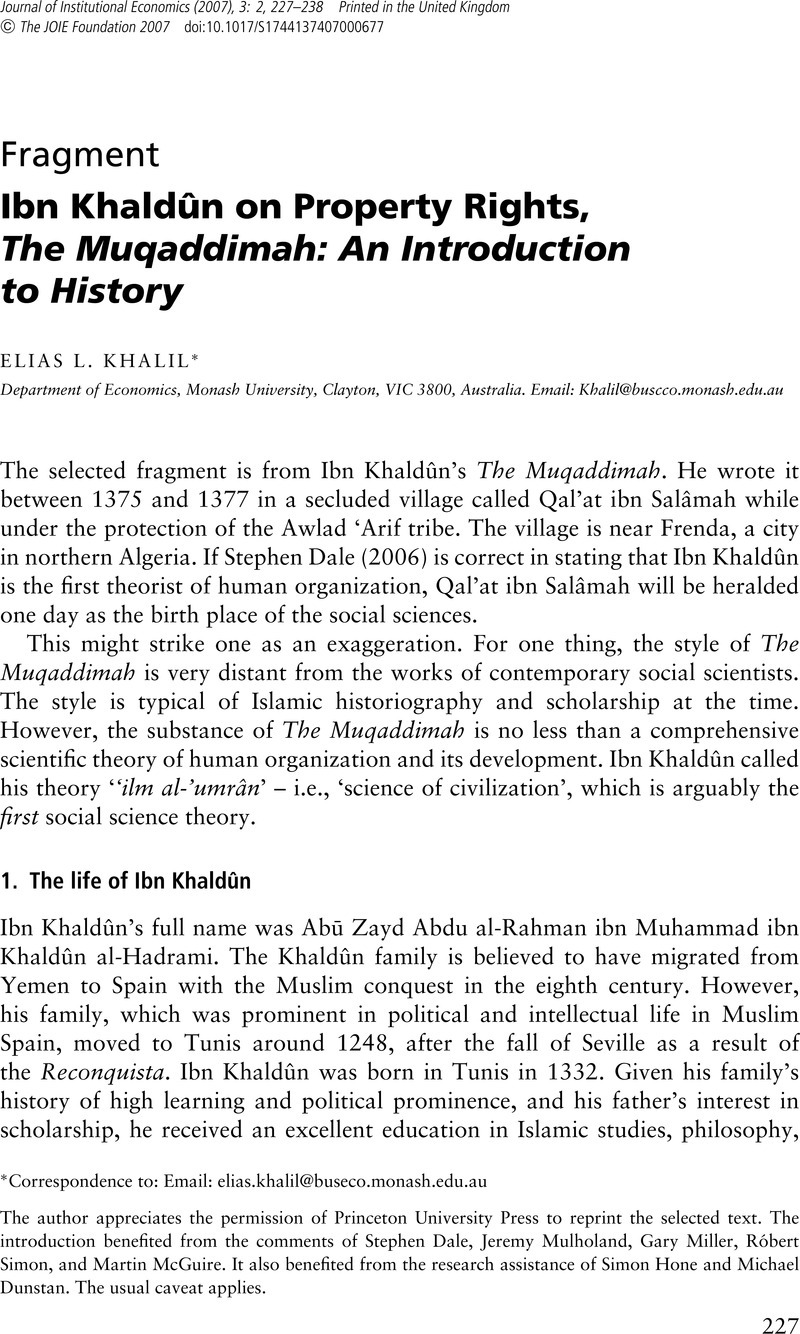Crossref Citations
This article has been cited by the following publications. This list is generated based on data provided by Crossref.
Khalil, Elias L.
2012.
WHY EUROPE? A CRITIQUE OF INSTITUTIONALIST AND CULTURALIST ECONOMICS.
Journal of Economic Surveys,
Vol. 26,
Issue. 2,
p.
351.
BAYAR, İlyas
2022.
Vergi Politikası, Devletin Ekonomiye Müdahalesi ve Mülkiyet Hakları Bağlamında Uygarlıkların Yıkılışı: İbn Haldun’un Mukaddimesi Üzerine Bir Değerlendirme.
Liberal Düşünce Dergisi,
p.
35.
Roy, Arpan
2024.
A space of appearance: Romani publics and privates in the Middle East.
Anthropological Theory,
Vol. 24,
Issue. 2,
p.
175.



